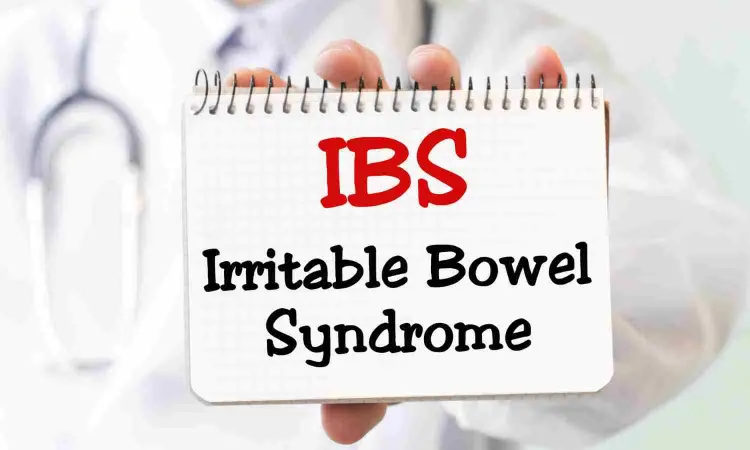- Home
- Medical news & Guidelines
- Anesthesiology
- Cardiology and CTVS
- Critical Care
- Dentistry
- Dermatology
- Diabetes and Endocrinology
- ENT
- Gastroenterology
- Medicine
- Nephrology
- Neurology
- Obstretics-Gynaecology
- Oncology
- Ophthalmology
- Orthopaedics
- Pediatrics-Neonatology
- Psychiatry
- Pulmonology
- Radiology
- Surgery
- Urology
- Laboratory Medicine
- Diet
- Nursing
- Paramedical
- Physiotherapy
- Health news
- Fact Check
- Bone Health Fact Check
- Brain Health Fact Check
- Cancer Related Fact Check
- Child Care Fact Check
- Dental and oral health fact check
- Diabetes and metabolic health fact check
- Diet and Nutrition Fact Check
- Eye and ENT Care Fact Check
- Fitness fact check
- Gut health fact check
- Heart health fact check
- Kidney health fact check
- Medical education fact check
- Men's health fact check
- Respiratory fact check
- Skin and hair care fact check
- Vaccine and Immunization fact check
- Women's health fact check
- AYUSH
- State News
- Andaman and Nicobar Islands
- Andhra Pradesh
- Arunachal Pradesh
- Assam
- Bihar
- Chandigarh
- Chattisgarh
- Dadra and Nagar Haveli
- Daman and Diu
- Delhi
- Goa
- Gujarat
- Haryana
- Himachal Pradesh
- Jammu & Kashmir
- Jharkhand
- Karnataka
- Kerala
- Ladakh
- Lakshadweep
- Madhya Pradesh
- Maharashtra
- Manipur
- Meghalaya
- Mizoram
- Nagaland
- Odisha
- Puducherry
- Punjab
- Rajasthan
- Sikkim
- Tamil Nadu
- Telangana
- Tripura
- Uttar Pradesh
- Uttrakhand
- West Bengal
- Medical Education
- Industry
Genetic study links defects in sugar digestion to irritable bowel syndrome, suggests study

Sucrase-isomaltase (SI) is an intestinal enzyme critical for the digestion of dietary carbohydrates, particularly sucrose and starch. Previous studies from the Gastrointestinal Genetics team at CIC bioGUNE - BRTA and LUM University suggested a genetic link between SI defects and IBS, whereby certain DNA changes cause reduced enzymatic activity and inefficient digestion of carbohydrates, thus inducing symptoms like bloating, diarrhoea, and abdominal pain. As the name gives away, however, SI is a special case in that it encompasses two enzymes with different carbohydrate-digesting properties (sucrase and isomaltase), both found on the SI protein encoded by a single gene. While earlier research associated SI genetic defects with IBS and responses to low-carb diets, it was unclear whether sucrase and isomaltase play distinct roles in disease risk and symptom severity.
In the new study, the Gastrointestinal Genetics team now analysed genetic and health data from over 360,000 individuals in the UK Biobank, and found that individuals with defective sucrase variants were exposed to a significantly higher risk of IBS, while those with isomaltase defects were not affected. At the same time, sucrase (but not isomaltase) defective carriers experienced more severe bowel symptoms, and were more likely to avoid sucrose-rich foods. “On top of maltose from starch (which is also digested by other enzymes), sucrase has the unique ability to break down sucrose” said senior author Mauro D’Amato, Professor of Medical Genetics at LUM University and Ikerbasque Research Professor at CIC bioGUNE, “and it may be so that this sugar triggers bowel symptoms in individuals with genetic defects associated with reduced sucrase function. This not only contributes to understanding IBS risk in people predisposed to carbohydrate maldigestion, but also supports the idea of tailoring their dietary treatment based on genetics.”
IBS affects millions worldwide, often with unclear pathogenesis and limited treatment options. This study reinforces the importance of digestive enzyme genetics in IBS predisposition, and provides rationale for dietary modifications - such as reducing sucrose intake - in genetically susceptible individuals. “While further studies are needed to validate these initial findings”, added Mauro D’Amato, “our results bear potential implications for the development of novel diagnostic tools, dietary strategies, and even enzyme-targeted therapies towards personalized approaches to IBS prevention and treatment”.
Reference:
Domain-specific effects of sucrase-isomaltase genotype in irritable bowel syndrome. Torices L, Bonfiglio F, Esteban-Blanco C, Zamfir-Taranu A, Naim HY, D’Amato M. Gastroenterology. DOI: 10.1053/j.gastro.2025.01.242.
Dr Kamal Kant Kohli-MBBS, DTCD- a chest specialist with more than 30 years of practice and a flair for writing clinical articles, Dr Kamal Kant Kohli joined Medical Dialogues as a Chief Editor of Medical News. Besides writing articles, as an editor, he proofreads and verifies all the medical content published on Medical Dialogues including those coming from journals, studies,medical conferences,guidelines etc. Email: drkohli@medicaldialogues.in. Contact no. 011-43720751


